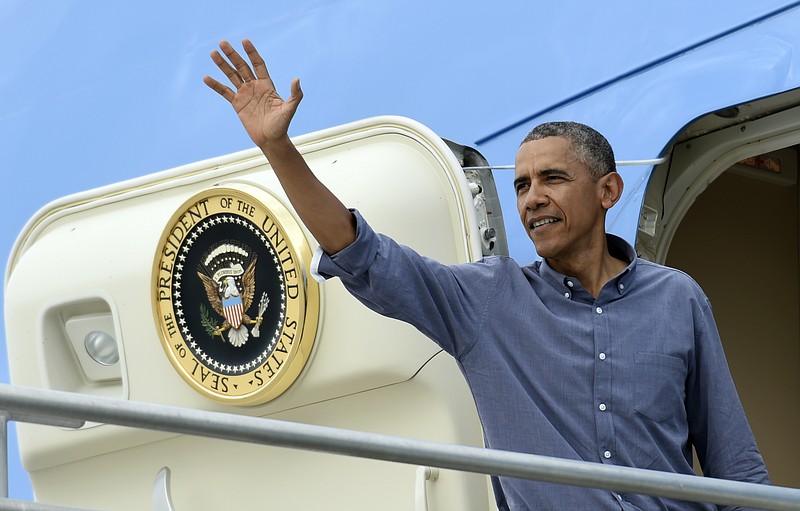WASHINGTON -- President Obama has been trying since his September 2013 address to the United Nations to convince Saudi Arabia and other Gulf allies that the United States is truly committed to their security. So far, he hasn't been very successful, but he'll try again next month at a Camp David summit meeting.
Obama's approach is part of a big strategic idea for the Middle East that could be described as "dual engagement." On the one hand, the U.S. is seeking an agreement with Iran to limit its nuclear weapons. On the other, the U.S. wants to bolster the Saudis and their neighbors through new U.S. military commitments. The goal is an eventual balance between a less-threatening Iran and a more confident, forward-leaning Saudi Arabia.
"We need to shape this so that Gulf countries have the ability to engage Iran from a position of greater equality and parity," explained a senior administration official. U.S. support for Saudi Arabia's military campaign in Yemen against Iranian-backed Houthi rebels is part of that attempt to rebalance a region where Iran and its proxies have been on a roll.
The U.S. initiative is a complicated two-step that brings to mind the admonition of Michael Corleone in "The Godfather Part II," to "keep your friends close but your enemies closer." Watching the U.S. cozy up with Iran, the Saudis and their neighbors must sometimes wonder which they are, friends or enemies. The Camp David meeting is meant to ease that anxiety.
Sheik Mohammed bin Zayed, the military leader of the United Arab Emirates, met with Obama on Monday to explore the agenda for the Camp David meeting, scheduled May 13 and 14. The UAE initially wanted a formal treaty to defend members of the Gulf Cooperation Council against external aggression. The White House countered that such a legal pact is "not realistic," given the problems of Senate ratification, and "not necessary," according to the official.
Yemen has been a test case of the chaotic dynamic in the Gulf. Despite misgivings, Obama has supported the three-week-old air war by Saudi Arabia and the UAE to check the Houthis (who are allied with former president Ali Abdullah Saleh) and push them toward a political solution.
"At some point, an air campaign has diminishing and marginal returns," argues the administration official.
The White House has publicly backed the Yemen operation, but officials worry that Iran's real aim may be to draw Saudi Arabia into a quagmire.
The White House has a final goal for the Camp David gathering, which is to galvanize action against internal threats to Gulf security from extremist groups such as the Islamic State, rather than just focus on the external threat from Iran. The administration sees an Arab world in disarray because of failing states and sectarian proxy wars with Iran that have ravaged Iraq, Syria, and now Yemen.
In a radically unstable Middle East, it's worth remembering two positive developments: First, the U.S. and Iran are talking productively after 36 years of enmity. And second, the U.S. is engaging honestly and creatively with its often prickly Gulf allies. Good policy would make these two trends converge in a way that, over the next decade, gradually stabilizes the region.
Gulf Arab leaders get offended when they hear Obama say, as he did to Tom Friedman of The New York Times, that "the biggest threats that they face may not be coming from Iran invading ... [but from] inside their own countries." They shouldn't worry. Such straight talk is part of a real friendship, and a real alliance.
Washington Post Writers Group
